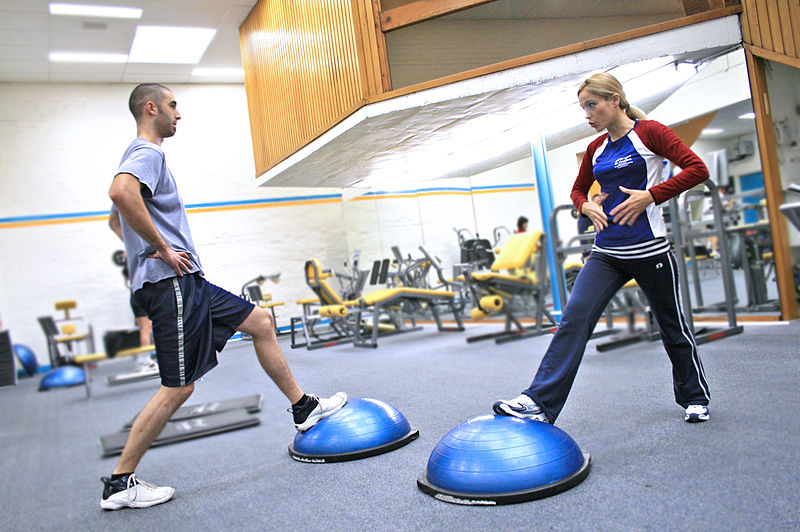Let’s imagine a discussion with a careers counsellor, the likes of which many people find themselves going through.
“I want to help people,” you say, exercising your empathetic side. “I want to make a difference to people’s lives and to help them be healthier.”
“Aha!” says the counsellor, who isn’t much one for thinking outside of the box. “Then be a doctor or a nurse!”
You pause. Doctor or nurse. They’re options, of course; noble professions without a doubt. However, they don’t seem like a good fit for you personally. Maybe you don’t like blood; perhaps you couldn’t stand the idea of treating a patient and still seeing them pass away. As good as these careers may be in some respects, they have a huge emotional toll – not to mention the educational requirements. If you’re having this imagined chat with a career advisor in your 50s, then the idea of seven potential years of medical school just isn’t attractive.
“I don’t think those suit me,” you respond, after much thought. “I just want to help people live the healthiest lives they can, but without being in the medical profession.”
“It’s not going to happen,” dismisses the counsellor.
The above can and does happen. Wanting to help people – a wonderful thing to want to do with your life – seems to expectantly fall into the medical profession… and absolutely nowhere else. Perhaps the idea of volunteering or charity work will be mentioned, but these are often irritatingly hands-off for a person who wants to be involved directly with those less fortunate than themselves.
If you want to make a real difference and help people live healthy lives but you don’t want to be saddled with full medical responsibilities, then what are your options?
Aromatherapist: Destressing The Soul
Aromatherapy is often referred to as a junk treatment, despite the fact studies have consistently shown that what we inhale can have an impact on how we feel. The reason for this is scientific in and of itself: essential oils are made up of chemical components. Some of those components can be inhaled (which means they enter the bloodstream through the mucus membrane in the nose) and they have a beneficial effect on the body.
Put it like this: if you accept that gas can kill (which it most definitely can), then it’s not a big leap to think it can be beneficial too.
Working with aromatherapy can help you harness the stress-relieving properties of essential oils. You could tailor blends specifically to an individual following consultations or work in massage; whichever you think will work best for you.
Do I Need Qualifications? Not necessarily, but if you want to work for a spa then a recognisable qualification is probably going to be a good place to begin. There are also free courses you can take online to give you a taster.
Fitness Instructor: Healthy Bodies and Healthy Minds
Given the fact we all now much accept how important exercise is to general health and well-being, working within the fitness field could be a great choice for you. Not only can you help people achieve optimal fitness, but you can also see the way that fitness can benefit their mind and happiness levels too.
Obviously, you will need a good level of personal fitness to be able to entire into this area – but then again, what better incentive could there be for your own health? Given that so many jobs these days are now sedentary – despite the inherent risks – this is one that will keep you on your feet, so you can help others while helping yourself.
Do I Need Qualifications? Yes, as working in this area is not as simple as just needing to know which piece of gym equipment works for which muscle group. The qualifications are nothing like you would need for a medical degree, however; companies such as Origym can help guide you through the steps you need to becoming qualified.
Counselling: Mental Healthy Thoughts
You may currently be thinking that counselling sounds an awful lot like something you’d been a medical qualification for, but that’s not the case. There is a difference between a psychologist/psychiatrist (which you definitely do need a degree and additional training for) and a standard counsellor.
A counsellor – or more commonly called a therapist – is not a person who diagnoses mental illness or prescribes treatment. Instead, they take the professional role for someone to talk to about their problems. You can work in helping people overcome a past trauma or just assist them, providing an objective opinion, on how they are managing their everyday life.
Do I Need Qualifications? Yes, but they are much more easily obtained than anything with a medical specification. Many qualifications can be done online as you learn how to talk to people and guide them through specific problems in life.
Life Coaching: The Ultimate Cheerleader
There is no strict definition for what makes a life coach. While they were once seen as the preserve of the rich and famous, more and more people are now turning to life coaches to help keep them on the right track. It might be helping someone stick to their diet or energising them to make vital changes in their life; either way, you’ll be making a difference.
It helps to be an extrovert in this profession, fuelled by an ardent desire to help people make the best of themselves. And, as with counselling, you need to be sure you are never going to be judgemental.
Do I Need Qualifications? No, but it does help to have something to show for your skills. Most life coaches are self-employed and being able to cite some background study can help make you seem more legitimate to potential clients.







Leave a Reply